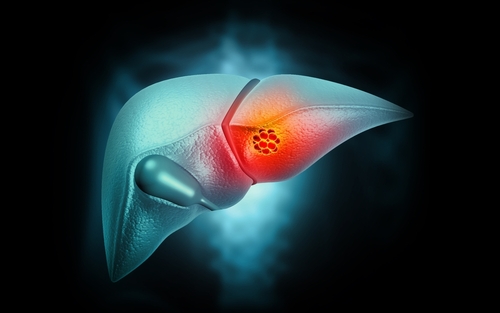
In patients with hepatocellular carcinoma (HCC), the tumor burden score (TBS) is often used as a prognostic marker to determine long-term survival and the extent of tumor involvement.
The study enrolled 576 patients with HCC who underwent radical resection between 2013 and 2022. X-tile software was used to determine the threshold TBS of ≥10.77 to judge patient prognostic outcomes after radical resection, while the control group consisted of patients with TBS ≤ 10.77.
Each patient was evaluated for the relationship between their TBS and overall survival (OS) rates, and cumulative recurrence. Kaplan-Meier curves showed that patients with high TBS had significantly decreased OS and increased recurrence rates compared to the study’s control group.
A multivariate Cox proportional regression model also demonstrated that patients with high TBS had worse OS (HR=2.56, 95% CI 1.64-3.99, P<.001) and recurrence-free survival (RFS) (HR=1.55, 95% CI 1.02-2.35, P<.001).
During the median follow-up period of 1.79 (0.92-3.61) years, 132 (22.92%) patients dies. The
Patients who have high TBS while undergoing radical resection for HCC potentially have worse OS and RFS compared with those who have lower TBS.







 © 2025 Mashup Media, LLC, a Formedics Property. All Rights Reserved.
© 2025 Mashup Media, LLC, a Formedics Property. All Rights Reserved.